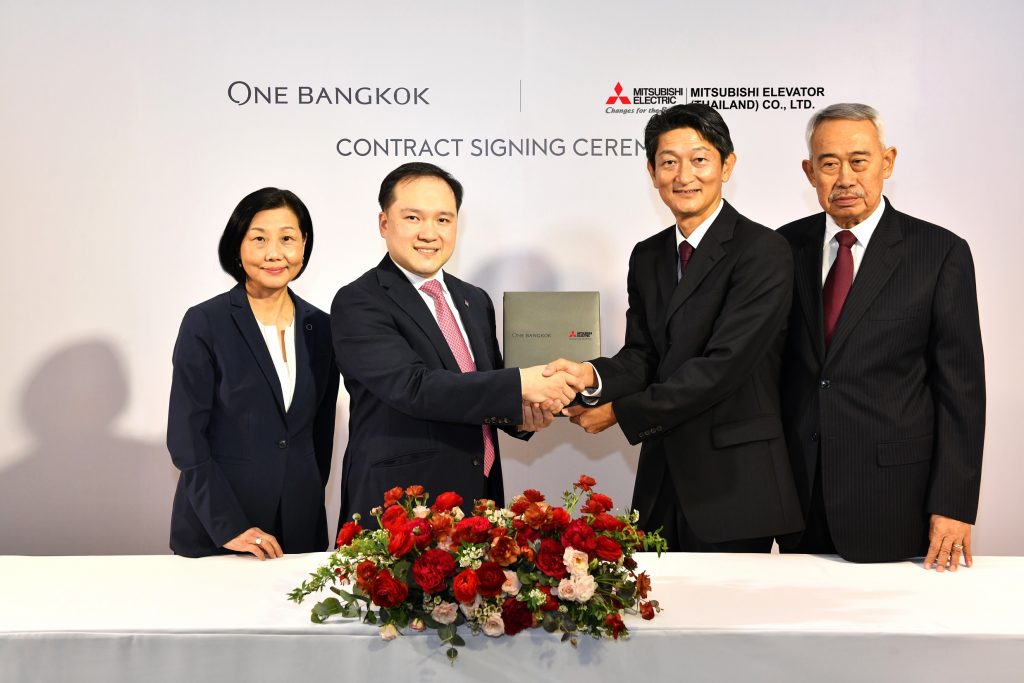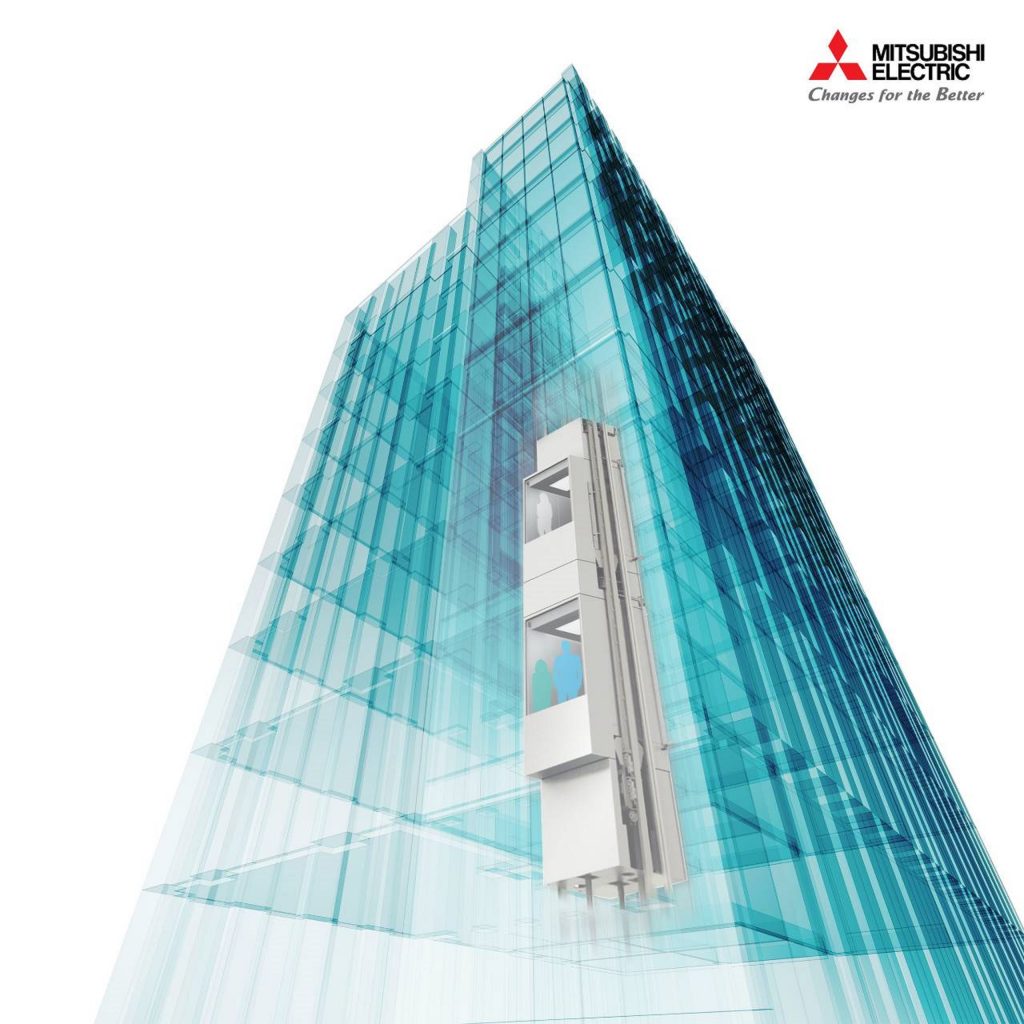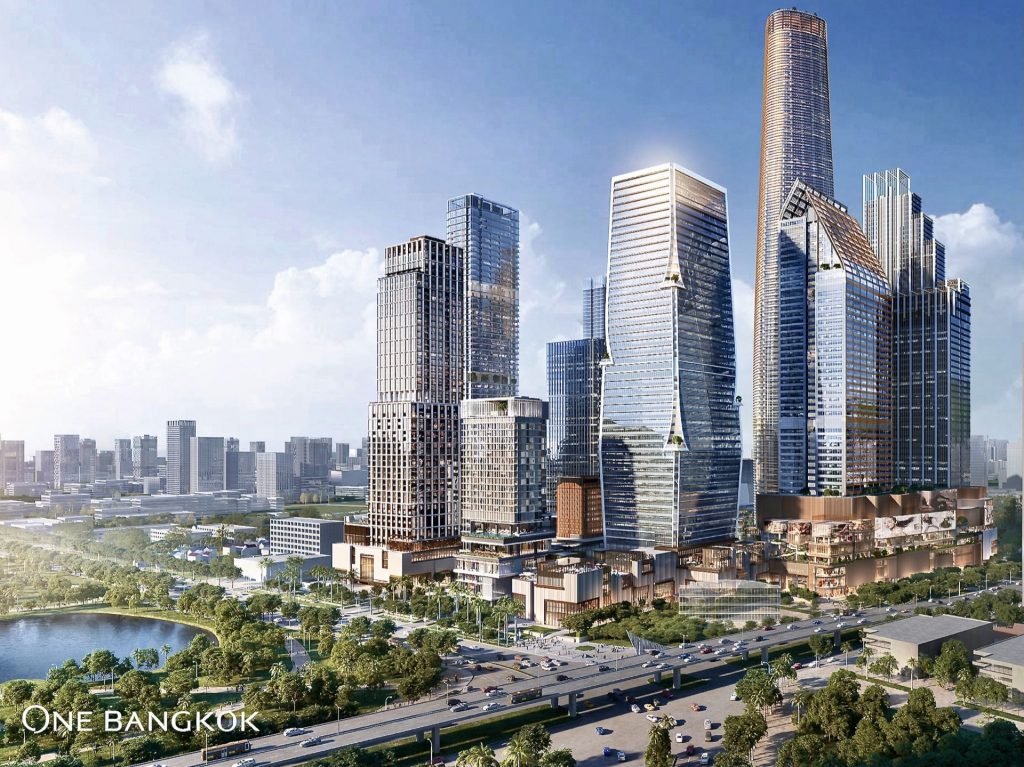One Bangkok: The largest fully-integrated real estate project will be the first to install “Double-deck elevator” in Thailand

With an investment of more than 120 billion baht, One Bangkok is the largest and most comprehensive real estate project in Thailand developed by TCC Assets (Thailand) Company Limited and Fraser Property Holdings (Thailand) Company Limited. Envisioned as a highly sustainable smart city, the project consists of grade A office buildings, multiple retail precincts, luxury hotels, residential towers, and spaces for arts and cultural activities that are connected throughout. The project aims to create the best and most memorable experiences for all customers and visitors.

The elevator and escalator system are an essential element that cannot be overlooked as it enhances the convenience of moving around the project for residents, business operators, as well as those coming to relax and for services. The project therefore selected Mitsubishi Elevator, a world leader in vertical transportation, to install and maintain the elevator and escalator system at One Bangkok. The record-breaking order consists of 250 elevators, 28 escalators, and the first 12 double-deck elevators in Thailand.
A double-deck elevator is an elevator with two cabins stacked vertically, which can carry twice the number of passengers of a conventional elevator, thus greatly increasing the capacity to accommodate passengers traveling between floors within a building. For example, while a conventional elevator can carry 20 passengers one way, a double-deck elevator can carry 40 passengers one way.
The working principle is that the 2 floors are divided into odd and even floors. The lower elevator stops on the odd floor while the upper elevator stops on the even floor. Therefore, it can transport passengers on both floors at the same time. The doors on the upper and lower floors are independent of each other, allowing them to be turned on and off at different times depending on the number of passengers on each floor.
Comparing between Single deck Elevator and Double deck elevator. Elevator shaft size can be reduced to be 67% when compare to the single deck elevator which has the same capacity and same speed, due to concept of double deck elevator able to keep the same total car area of single deck elevator with the same capacity, speed but less shaft size requirement.

For example, elevator with 1600 kg of capacity, 360 m/min of speed. Single deck elevator required 14.28 sq. m. (shaft size width 5.6 m. as minimum). But double deck elevator required only 9.45 sq. m. (shaft size width 3 m. as minimum) which is 67% of single deck elevator as indicated earlier. Noting that both single and double deck elevator required similar amount of shaft depth.
This is ideal for high-rise buildings in the city center. The double-deck elevator also offers twice the speed of handling passengers, making it highly suitable for office buildings with many parking floors. It reduces the number of parking floors by half of the total number of floors that must be stopped. For example, in the case of a building with 50 floors, when using the double-deck elevator, the number of parking floors will be reduced to 25 floors, etc.
In terms of the safety system, the double-deck elevator is designed with passenger safety in mind. The highly efficient elevator drive system is controlled by Micro Processors and dual braking system. It also has an electrical control device for precise floor parking and is equipped with every elevator safety system, be it speed control (Speed Governor), which monitors and regulates the elevator speed, Safety Gears firmly lock the elevator to guide rails, and the safety devices that control the elevator doors. In the case that the elevator door is not completely closed, or the elevator system stops working, a control system will prevent the elevator door from pinching the passenger while walking in-out of the elevator. Another key feature is the emergency power system. In the event of a power failure, the elevator uses backup power from the building generator to automatically and safely evacuate passengers. Many other devices and functions designed to support passenger safety are installed as part of the system, ensuring quality and safety that customers can fully trust.
One Bangkok’s decision to use double-deck elevators not only puts the high-rise buildings within the district on par with world-class skyscrapers that also employ double-deck elevators, such as Roppongi Hills in Tokyo, CCTV New Site in Beijing, or Shanghai Tower in Shanghai, it also helps promote the best use of energy and resources, in line with the project’s core values of environmental sustainability, and Smart City living. One Bangkok aims to be the first project in Thailand to receive LEED Neighborhood Development Platinum certification and WELL, the world’s first standard that focuses on the quality of life of residents and building occupants. One Bangkok is expected to open in 2023, with full completion slated for 2026.

